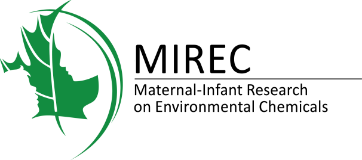
Tea consumption in pregnancy as a predictor of pesticide exposure and adverse birth outcomes: the MIREC Study.
Colapinto CK, Arbuckle TE, Dubois L, Fraser WD. Environmental Research. 2015 Oct;142:77-83. doi: 10.1016/j.envres.2015.06.020
Tea is commonly consumed worldwide. In order to protect tea leaves from various fungal diseases and insects, crops may be sprayed with pesticides including organochlorines (OCs) and organophosphates (OPs). Pesticide residues have been detected in dry leaves of some teas. Both OCs and OPs may cross the blood-placental barrier and be transferred from mother to baby. Data from the pan-Canadian Maternal-Infant Research on Environmental Chemicals (MIREC) Study were used to investigate the potential association between tea consumption and adverse birth outcomes, particularly during the first trimester when fetal growth and neurological development begins.
Data were collected from approximately 1,900 pregnant women. Levels of OCs and OPs were measured in maternal blood and urine samples during the first trimester of pregnancy.
Only 21% of the women reported drinking tea, and only about 5% drank 7 or more cups of tea per week. No information was collected on the properties of tea (e.g. country of origin), other than the tea type.
Only trace levels of OPs and OCs and their breakdown products (metabolites) were detected in maternal blood and urine with no significant difference between tea drinkers and non-tea drinkers. Tea (black, green or herbal) consumption during the first trimester was not associated with adverse birth outcomes (i.e. preterm birth, low birth weight or smaller head circumference).
In this study population, there was no association observed between tea drinking and levels of these pesticides in blood or urine during pregnancy and no association between tea drinking and infant size at birth or preterm delivery. Tea consumption, however, was lower in this study than what has been reported for women in Canada.
MIREC Année all rights reserved - Privacy policy
Website by Riposte


